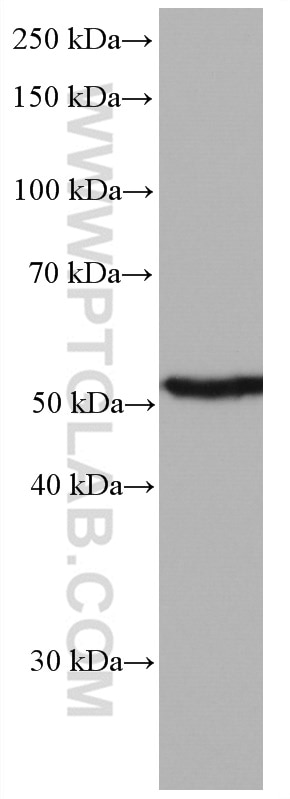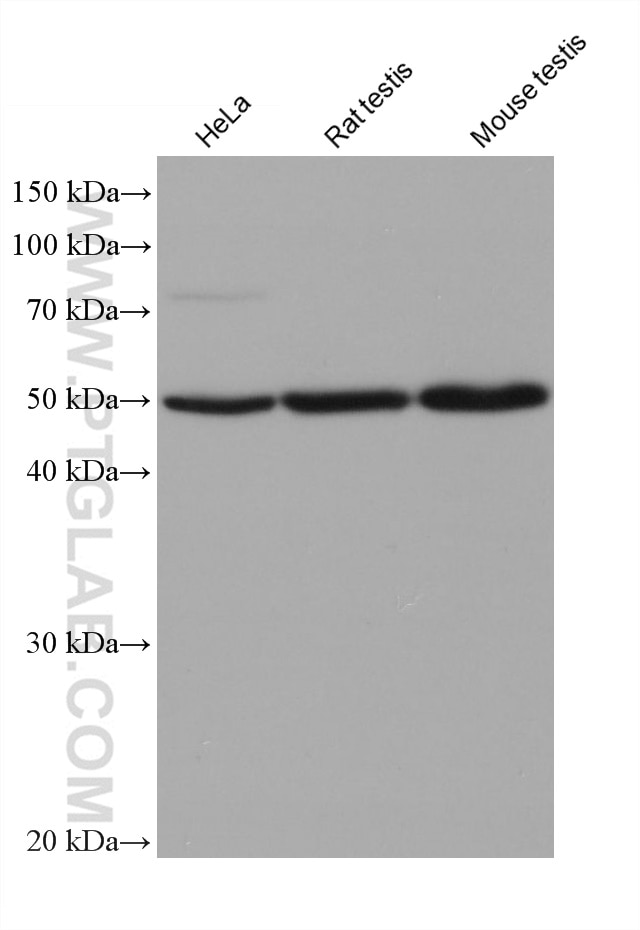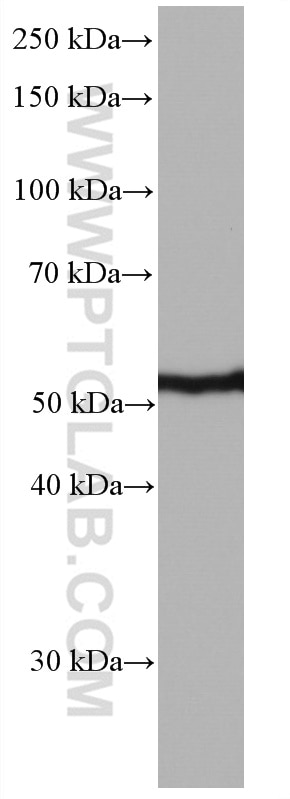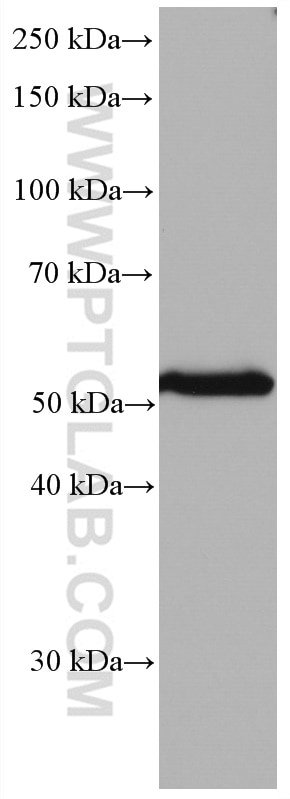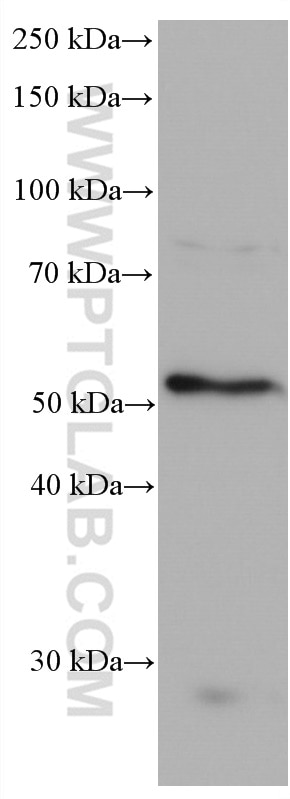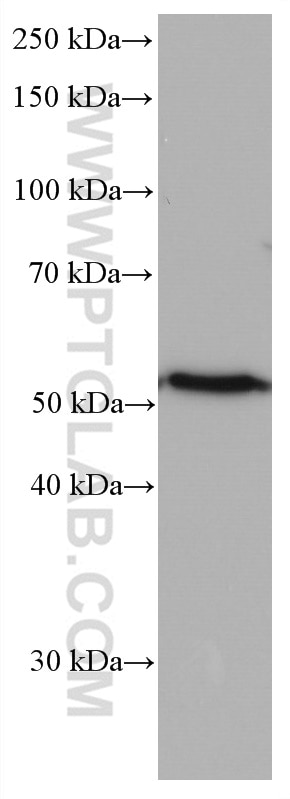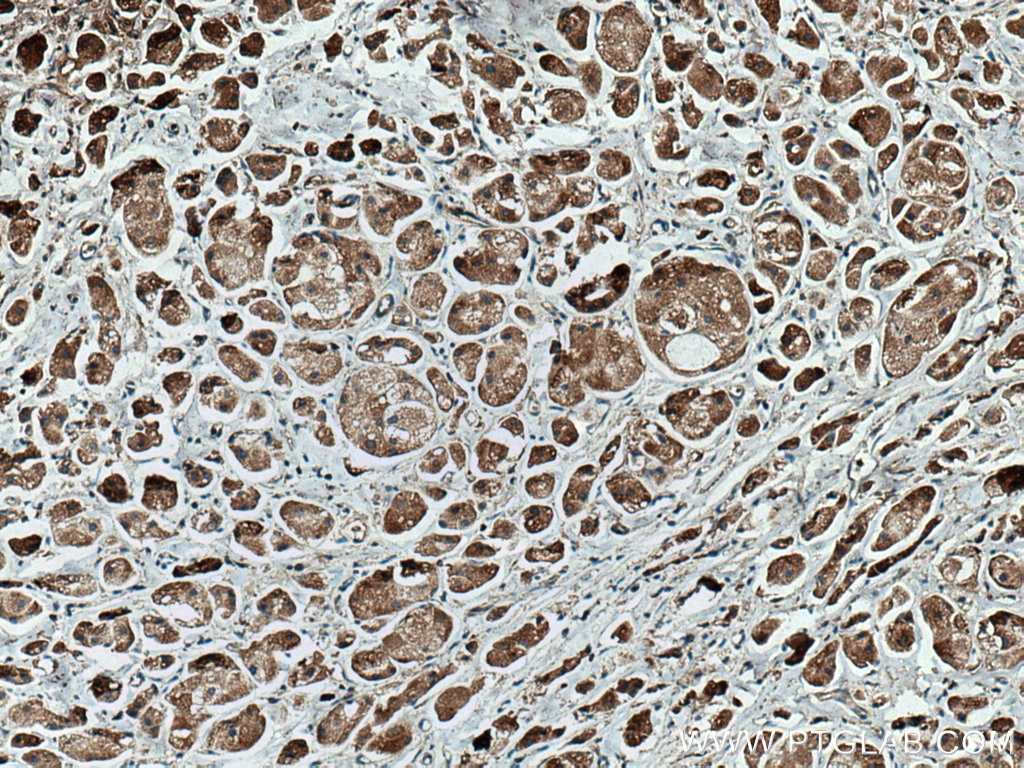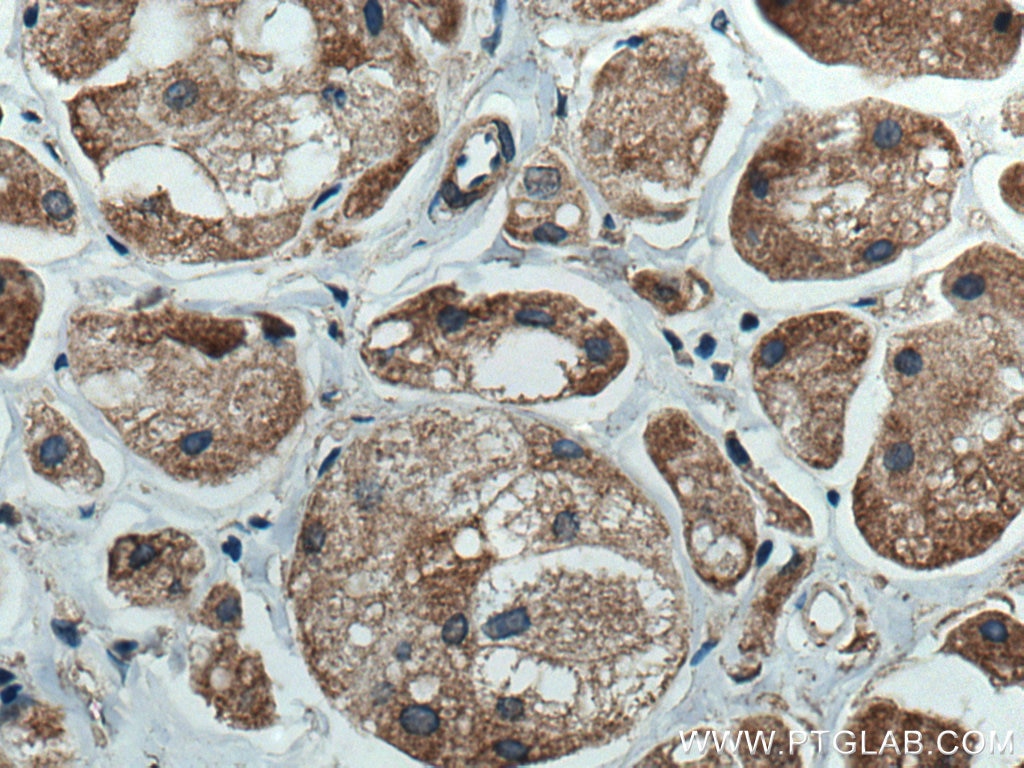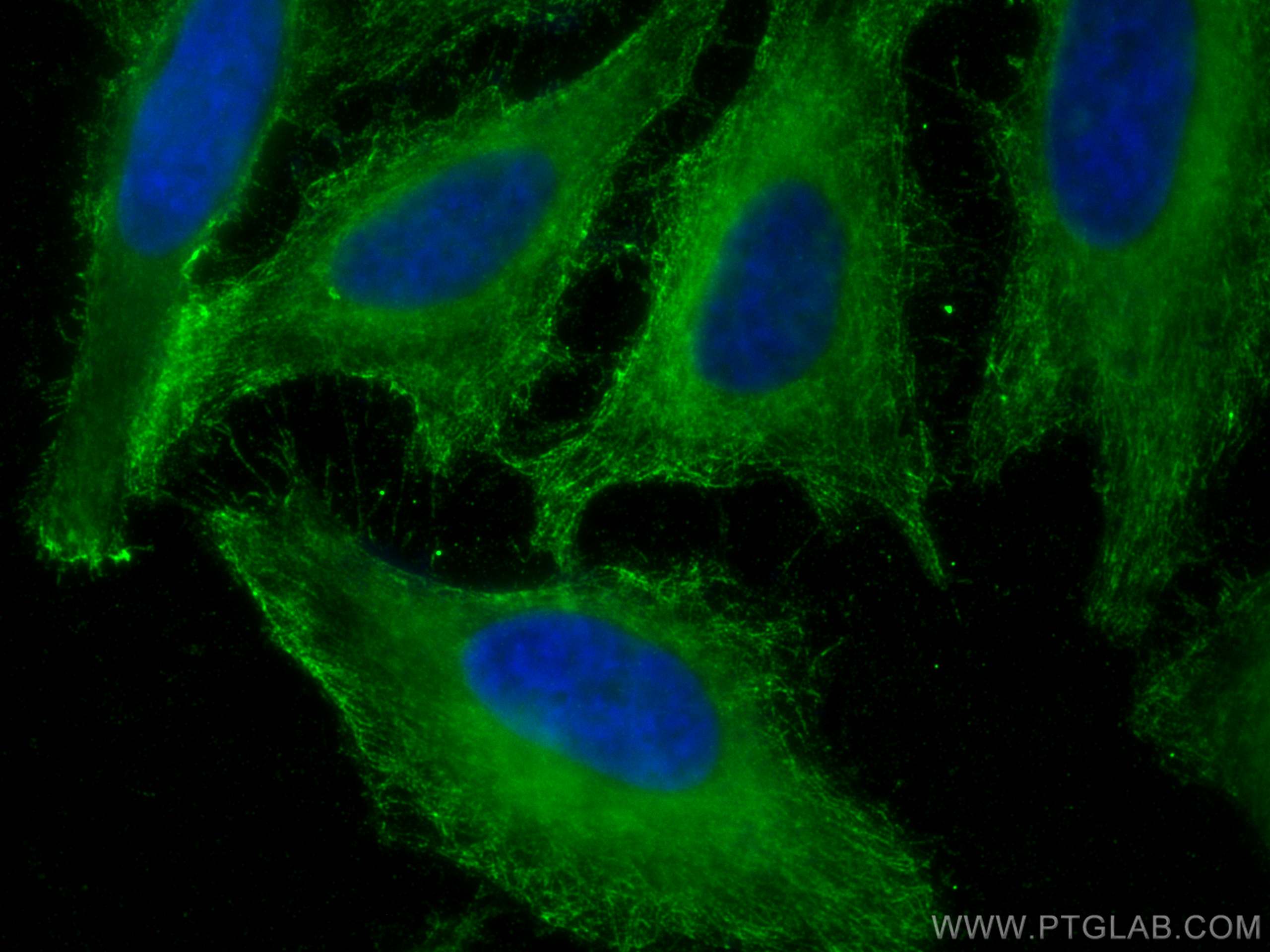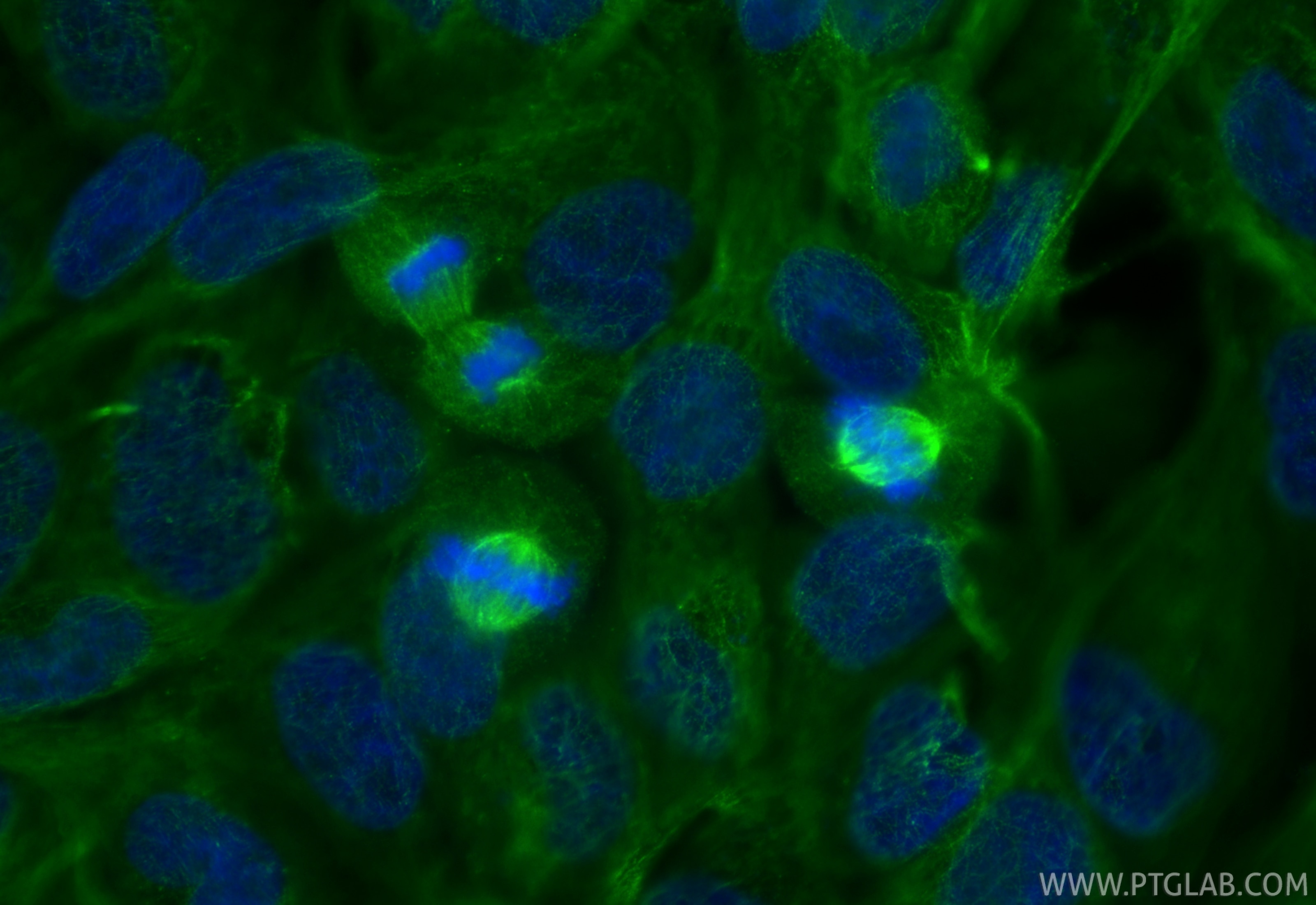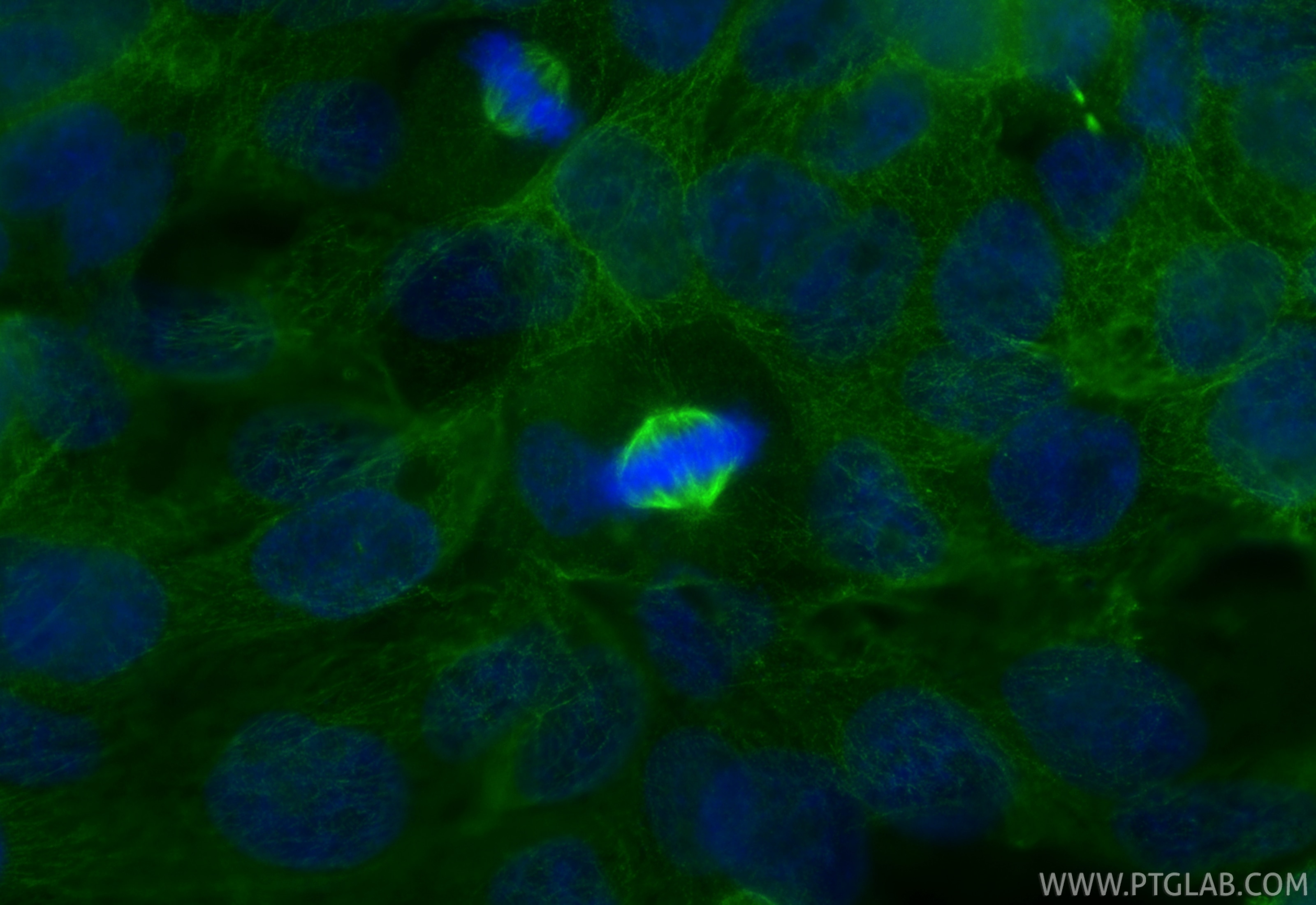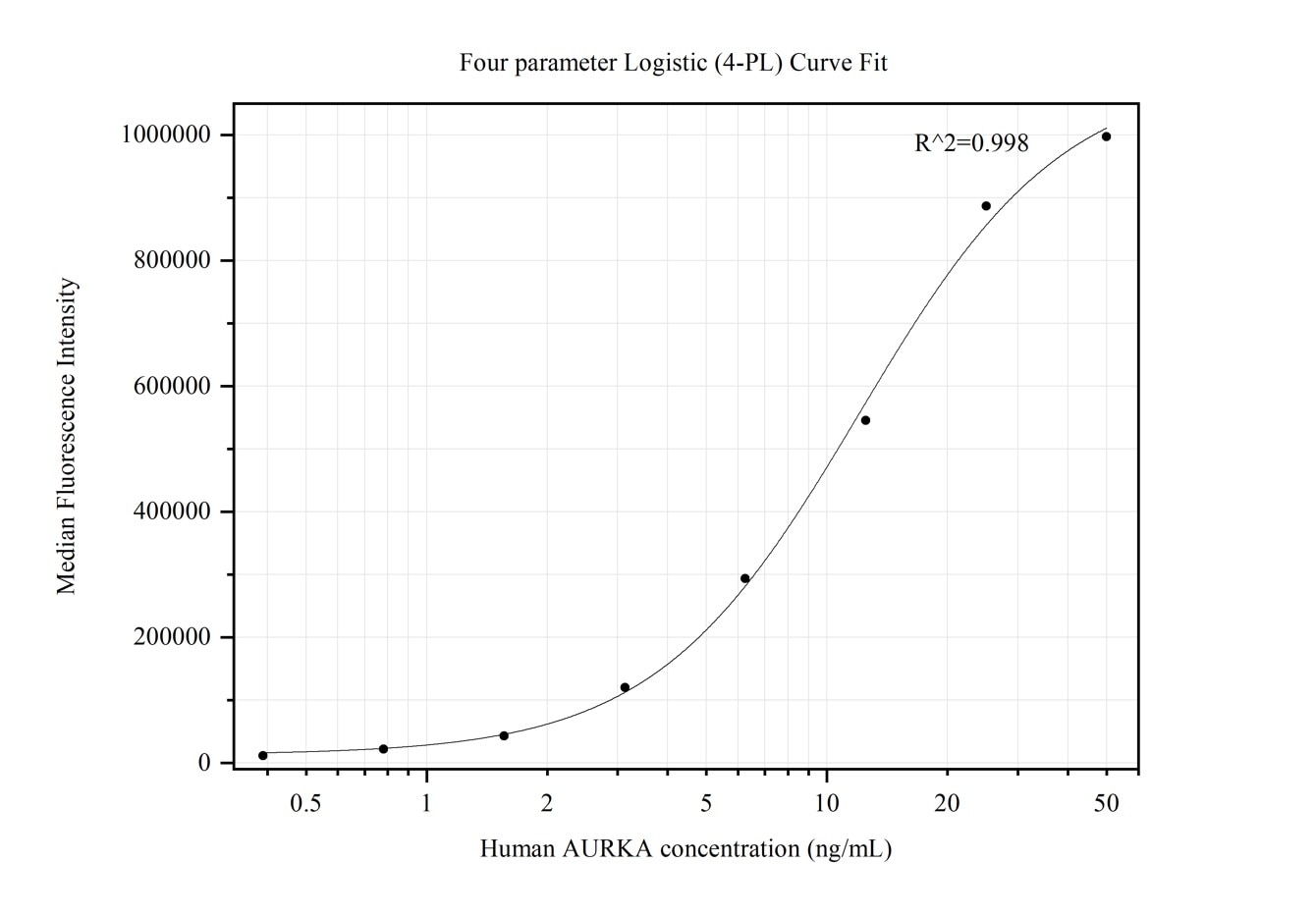Validation Data Gallery
Tested Applications
Recommended dilution
| Application | Dilution |
|---|---|
| It is recommended that this reagent should be titrated in each testing system to obtain optimal results. | |
Product Information
66757-1-PBS targets AURKA as part of a matched antibody pair:
MP50265-1: 66757-2-PBS capture and 66757-1-PBS detection (validated in Cytometric bead array)
Unconjugated mouse monoclonal antibody pair in PBS only (BSA and azide free) storage buffer at a concentration of 1 mg/mL, ready for conjugation.
This conjugation ready format makes antibodies ideal for use in many applications including: ELISAs, multiplex assays requiring matched pairs, mass cytometry, and multiplex imaging applications.Antibody use should be optimized by the end user for each application and assay.
| Tested Reactivity | human, mouse, rat |
| Host / Isotype | Mouse / IgG3 |
| Class | Monoclonal |
| Type | Antibody |
| Immunogen |
CatNo: Ag20096 Product name: Recombinant human AURKA protein Source: e coli.-derived, PET28a Tag: 6*His Domain: 108-337 aa of BC002499 Sequence: NNPEEELASKQKNEESKKRQWALEDFEIGRPLGKGKFGNVYLAREKQSKFILALKVLFKAQLEKAGVEHQLRREVEIQSHLRHPNILRLYGYFHDATRVYLILEYAPLGTVYRELQKLSKFDEQRTATYITELANALSYCHSKRVIHRDIKPENLLLGSAGELKIADFGWSVHAPSSRRTTLCGTLDYLPPEMIEGRMHDEKVDLWSLGVLCYEFLVGKPPFEANTYQET 相同性解析による交差性が予測される生物種 |
| Full Name | aurora kinase A |
| Calculated molecular weight | 46 kDa |
| Observed molecular weight | 46-52 kDa |
| GenBank accession number | BC002499 |
| Gene Symbol | AURKA |
| Gene ID (NCBI) | 6790 |
| RRID | AB_2882103 |
| Conjugate | Unconjugated |
| Form | |
| Form | Liquid |
| Purification Method | Protein A purification |
| UNIPROT ID | O14965 |
| Storage Buffer | PBS only{{ptg:BufferTemp}}7.3 |
| Storage Conditions | Store at -80°C. |
Background Information
AURKA(Aurora kinase A), also named as STK6, STK15 or AIK, belongs to the Ser/Thr protein kinase family. This protein may play a role in cell cycle regulation during anaphase and/or telophase by being involved in microtubule formation and/or stabilization. Some recent evidence revealed that AURKA may also be implicated in tumor development and progression. AURKA is expressed highly in testis and various proliferating cells, migrating as a 46 kDa protein in SDS PAGE.Nuclear staining for AURKA is weak or nonexistent in normal tissue but strong in tumor tissue(PMID:19107951).

